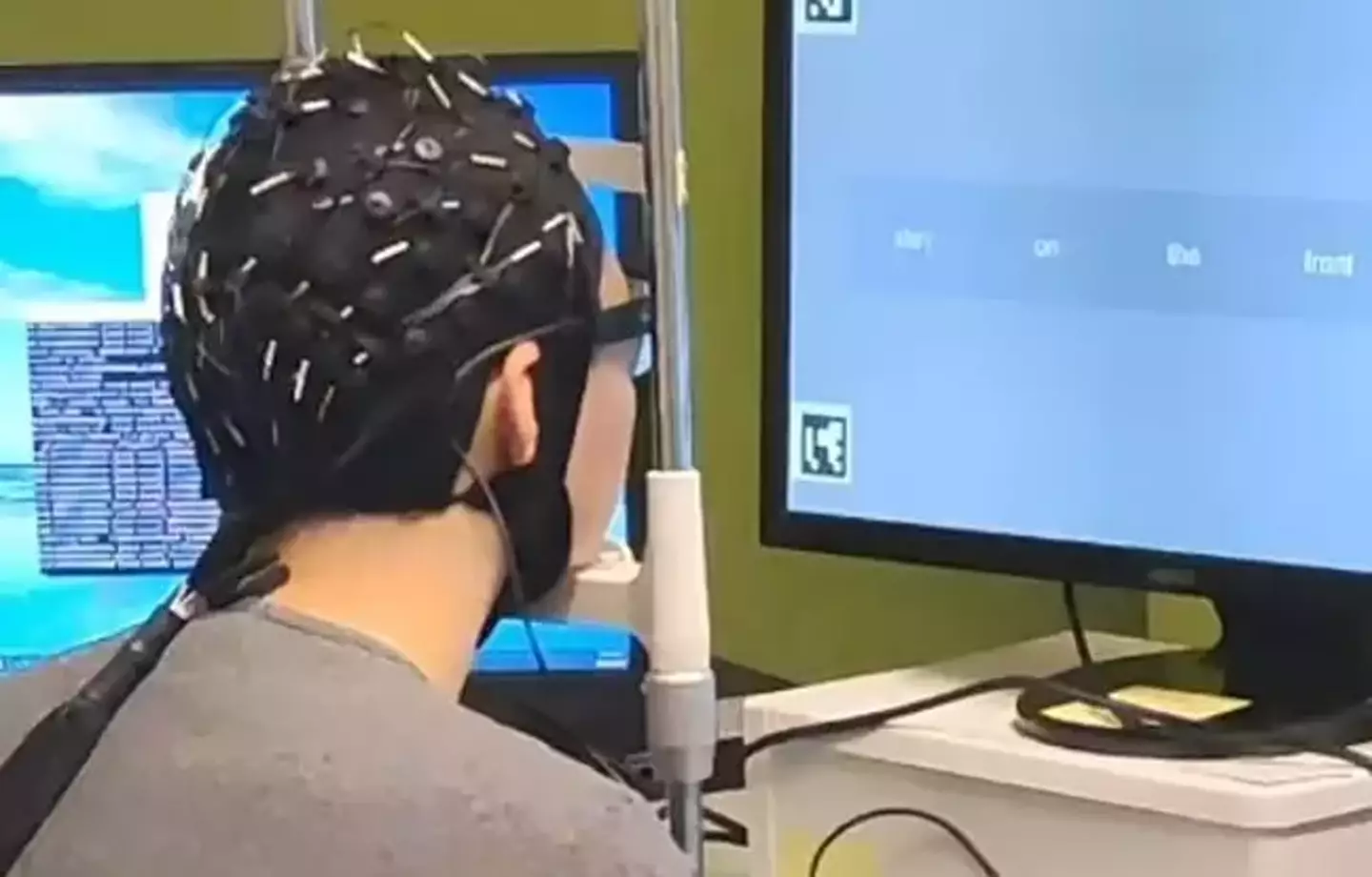
Ever fancied reading someone's mind? Well, maybe soon you can, as scientists have gone all sci-fi and created a helmet that might just actually do that.
But before we get too carried away, we should note that the helmet doesn’t instantly give you mind-reading abilities like something from a comic book.
The researchers, from the University of Technology Sydney, say the helmet can read brain waves and translate them into readable text, all via the magic of artificial intelligence (AI). Still pretty impressive, right?

Advert
The helmet isn’t your everyday type that you’d wear when riding a bike, either. This one's kitted out with sensors that translate your thoughts into text. Just pop it on, think your thoughts, and boom – your brain waves get converted into words. It's like having a chat with your brain. Sure, it's not like this helmet's spitting out full-on monologues, but it’s a start.
So how does it work? During the scientists’ tests, participants read out a text and the AI sensors in the helmet tracked their brain waves. These were then converted into another text that was surprisingly close to the original.
One test subject thought: "Good afternoon! I hope you're doing well. I'll start with a cappuccino, please, with an extra shot of espresso."
The AI's translation? "Afternoon! You well? Cappuccino, Xtra shot. Espresso."
Pretty impressive stuff.
But let's not get ahead of ourselves. The study, though promising, is still in its early stages. With only 29 participants and about a 40% accuracy rate, it's not exactly foolproof. Yet, it's a massive leap in technology. Translating actual thoughts into text? It’s the stuff of make-believe.
The brain behind this brainy helmet, Chin-Teng Lin, says it's non-invasive, relatively cheap, and easy to carry around. Presenting the idea at the NeurIPS conference in New Orleans, Louisiana, he said there’s no invasive brain surgery required - a la Elon Musk’s Neuralink chip proposal (more on that later). This helmet uses something called the DeWave system, combining AI and loads of EEG data to make sense of our brain waves.
Chin-Teng Lin is dreaming big, aiming for a whopping 90% accuracy in the future. So, hold onto your hats (or helmets) because the mind-reading future is just around the corner. And while a bit mind-boggling, let's be honest, it’s a tad scary too.

While we’re on the subject of scary - Elon Musk's neurotechnology company Neuralink is looking for volunteers for its 'first-in-human clinical trial'.
The brain chip has previously been tested on pigs and monkeys, however it's yet to be implanted into a human's brain.
Neuralink - founded by the SpaceX and Tesla CEO alongside a team of scientists and engineers - revealed it received approval for a human trial from the Food and Drug Administration (FDA) earlier this year.
And it has since announced it's also received approval from “the reviewing independent institutional review board and [its] first hospital site” to start recruitment. So, who’s up for it?